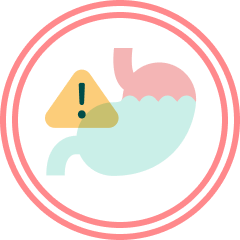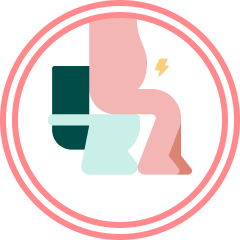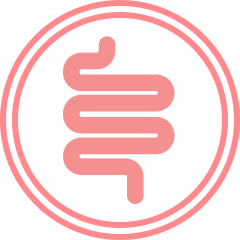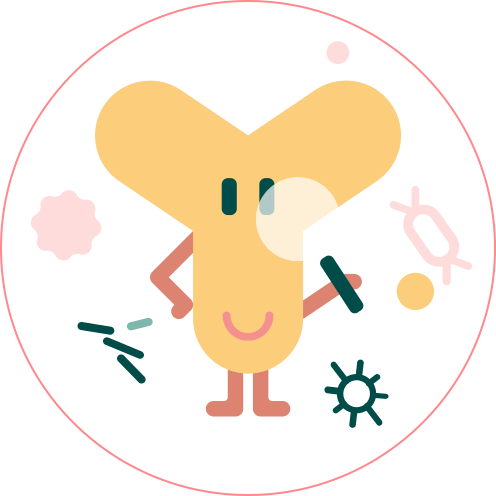แพ็คเกจการตรวจจุลินทรีย์ในลำไส้เฉพาะบุคคล
Where does microbiome
inside us come from?
inside us come from?

Each person’s health
requires unique care.

Each person’s health
requires unique care.


Did you know that there are between 30-400 trillion microbes, including bacteria, viruses and fungi, living in the human digestive system? That’s 1.1 times our total body cell count. Which is why we call this microbiome our 33rd organ, as it is necessary for proper function of many body systems.
When mentioning microbes or bacteria, most people view them as a health threat. But in fact, both beneficial and harmful bacteria exist, and our health will be negatively impacted when an imbalance occurs — such as having too few beneficial bacteria to control the harmful ones. Beneficial bacteria are necessary for our well-being because they stimulate our immune system, feed our cells, and protect us from other harmful bacteria as well as viruses.

Nevertheless, different types of probiotics work differently and the digestive tracts of each person contains different microbiome. So how do we know which type of probiotics we need to supplement to suit our personal health needs?
The answer is to check your gut microbiome, to understand them better
and develop a personalized health care program with the appropriate probiotics.
When there’s an imbalance in gut microbiome, the beneficial bacteria will be replaced with harmful ones. This causes a decrease in production of vitamins and neurotransmitter chemicals (such as serotonin, dopamine and GABA) due to lesser beneficial bacteria to produce them. As a result, your sleep can be affected.
Maintaining the balance of gut microbiome helps strengthen your resistance to diseases. When bacteria along the gut linings decreases, harmful bacteria can easily enter and cause mucosal cell damage as well as release inflammatory chemicals and prevent immune response by intestinal cells.
Microbiome imbalances often lead to build-up of harmful bacteria which releases toxins that breakdown mucosal cells along gut linings, making it easy for these bacteria to enter your gut’s inner layers and trigger inflammation when your immune system responds.
When overeating, the human digestive system can’t digest effectively. Any remaining food will then be broken down by various bacteria with different digestive enzymes. But when an imbalance occurs due to a lack of certain bacteria, there will be insufficient enzymes produced to properly digest the food, causing irregular metabolism and indigestion.
When digested food reaches the large intestines, the bacteria there will break down the remaining food fibers. But an imbalance in microbiome can slow down this process and affect bowel movement. Harmful bacteria in the small intestines will also increase, causing bloating and indigestion.
When food is not properly broken down due to a lesser variety of food-digesting bacteria, the food will remain in the intestines longer than usual and cause irritable bowel syndrome.

When there’s an imbalance in gut microbiome, the beneficial bacteria will be replaced with harmful ones. This causes a decrease in production of vitamins and neurotransmitter chemicals (such as serotonin, dopamine and GABA) due to lesser beneficial bacteria to produce them. As a result, your sleep can be affected.
This is caused by inflammation due to a microbiome imbalance and infection by uncontrolled bacteria that produce inflammatory toxins.
When the variety of microbiome decreases, there will be insufficient enzymes for digestion. So when we overeat, our food won’t be completely digested and the energy produced won’t be used up, causing accumulation of extra energy and fat
As your gut loses its natural balance and the linings’ mucosal cells become damaged, a leak can occur and harmful bacteria, toxins, and inflammatory agents can enter the blood stream. This weakens your oral defense mechanisms leading to tooth decay.

Maintaining the balance of gut microbiome helps strengthen your resistance to diseases. When bacteria along the gut linings decreases, harmful bacteria can easily enter and cause mucosal cell damage as well as release inflammatory chemicals and prevent immune response by intestinal cells.

Microbiome imbalances often lead to build-up of harmful bacteria which releases toxins that breakdown mucosal cells along gut linings, making it easy for these bacteria to enter your gut’s inner layers and trigger inflammation when your immune system responds.

When overeating, the human digestive system can’t digest effectively. Any remaining food will then be broken down by various bacteria with different digestive enzymes. But when an imbalance occurs due to a lack of certain bacteria, there will be insufficient enzymes produced to properly digest the food, causing irregular metabolism and indigestion.

When digested food reaches the large intestines, the bacteria there will break down the remaining food fibers. But an imbalance in microbiome can slow down this process and affect bowel movement. Harmful bacteria in the small intestines will also increase, causing bloating and indigestion.

When food is not properly broken down due to a lesser variety of food-digesting bacteria, the food will remain in the intestines longer than usual and cause irritable bowel syndrome.

This is caused by inflammation due to a microbiome imbalance and infection by uncontrolled bacteria that produce inflammatory toxins.

When the variety of microbiome decreases, there will be insufficient enzymes for digestion. So when we overeat, our food won’t be completely digested and the energy produced won’t be used up, causing accumulation of extra energy and fat

As your gut loses its natural balance and the linings’ mucosal cells become damaged, a leak can occur and harmful bacteria, toxins, and inflammatory agents can enter the blood stream. This weakens your oral defense mechanisms leading to tooth decay.

Frequent intake of food with flour and high fat content or instant food with preservatives and insecticide may reduce the beneficial bacteria in your gut.

Such as insomnia, stress, and insufficient exercise.

Long-term continuous consumption of antibiotics can cause an imbalance in microbiome culture. Because our gut are full of different types of bacteria, both beneficial and harmful ones, frequently taking antibiotics can completely kill off both kinds making it easy to contract diseases.

Bacteria starts entering a baby as soon as water breaks.
A baby that’s given a natural birth will pick up microbes and bacteria directly from the mother’s birth canal. But if given birth through operation, the baby will pick up microbes and bacteria from skin contact with the mother, doctor and nurses performing the operation.
Breastfed vs. Formula milk
A breastfed baby will receive antibodies from the mother, reducing risks of having allergies. But a baby fed with formula milk will not receive this immunity.

PROBIOTICS
Our body has microbiome or bacteria
that are beneficial to our well-being called probiotics. They can be found in yoghurt, kimchi, nutto, and miso.
PREBIOTICS
These are food for our probiotics, mostly found in food that’s high in fiber and can’t be digested such as garlic, onions, red beans and various fruits and vegetables.
POSTBIOTICS
These are chemicals produced by probiotics that improves efficiency of our body’s various system functions such as the immune system, digestive system, and weight control.

Studies show that there’s a linkage between gut inflammation and emotional well-being.
Patients with food-related illnesses
can also suffer from depression and anxiety.
Microbiome and bacteria in our digestive system can affect our ability to sleep.
Communication of the Gut-Brain Axis, which transfers data between our guts and brain, is dependent on microbiome functions and controls our sleep genes including serotonin, a chemical necessary for brain and neural functions which affects our thinking, behaviors, mood and ability to sleep.

A mother’s womb serves as a shield from bacteria and viruses. When we’re born, we pick up various microbiome instantly, depending on the method of birth and where it took place.



Even if we’re in the same place eating the same menu, the microbiome in our bodies have different standards, which is why the health care plan needs to differ. Come get to know the microbiomes inside you so that we can develop the most suitable health care for you.
We use cookies to offer you a better user experience and analyze site traffic. You can read the details at COOKIE POLICY and can manage your own privacy by clicking Setting